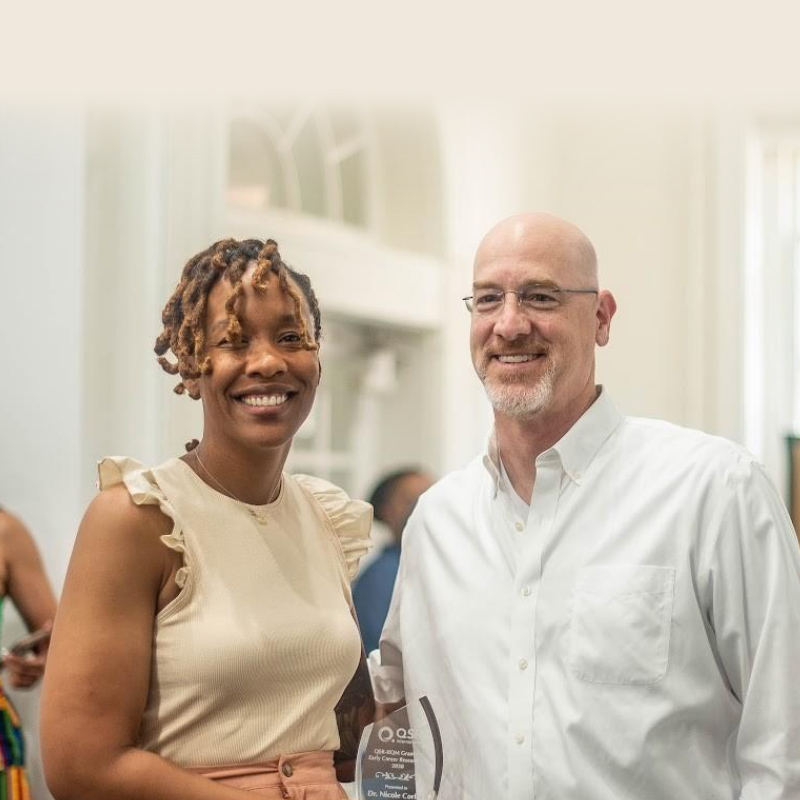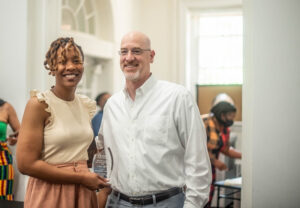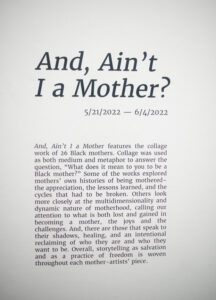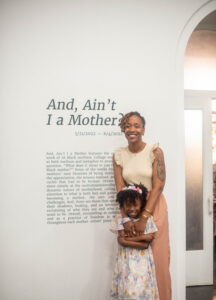
In 2020, QSR International established a $25,000 Research Grant designed to support innovation in research methodologies and the work of early career researchers. The primary importance of this grant is the enablement it provides to early career researchers who often find it difficult to access research grants as they have to compete with established scholars.
Dr. Nicole Corley, the first QSR-IIQM Research Grant for Early Career Researchers recipient, focused her art-based research project on the exploration of Black motherhood through collage-making, applying Qualitative Art-based Collage as her primary research tool and using Thematic Analysis Poetic Transcription to analyze her collected data.
“The beauty and complexity of Black mothers’ experiences have been largely ignored in the scene and often deficit-based literature,” says Dr. Corley. “Using collage-making as a type of storytelling technique. this project endeavors to capture a more nuanced and authentic understanding of the meaning Black mothers make of their mothering experiences.”
To complete the research, Dr. Corley’s team used NVivo to:
- Organize files into data types, focus groups, collages and poems as well as imported images of collages with comments from participants.
- Analyze data by coding on the collage images and participant comments
- Visualize potential findings by creating concept maps and charts to search for common characteristics such as content, colors, and shapes as well as how art was organized
- Collaborate using NVivo Collaboration Cloud to merge projects and run a coding comparison query for inter-rater reliability.
Dr. Corley has since completed her research and recently held an exhibition on May 21, 2022 to display the work accomplished with the funding the QSR Research Grant provided. To celebrate this milestone and acknowledge the completion of Dr. Corley’s work, QSR’s Chief Customer Officer, Britt Nichols, attended the event and presented Dr. Corley with a commemorative award to honor her achievement as part of the exhibit.

Key findings of the research included:
- Black mothers expressed themselves and learned the power of self-definition through the process of creating a collage.
- The mothers were intentional in how their story was told, providing a very balanced picture of their experiences including challenges and joys.
- Breaking generational patterns around discipline and how to help their children thrive and not just to survive by respecting and honoring their children’s voices.
- Embracing support networks: “It takes a village; you can't be a good mom by yourself”.
You can hear more about Dr. Corley’s process and journey on our NVivo Podcast: Between the Data – episodes 18 & 40.

MORE ABOUT AND, AIN’T I A MOTHER
The exhibition And, Ain’t I a Mother, presented by Anderson and VCUarts drew on the iconic speech “Ain’t I a Woman (1851)” by Queen Mother, scholar, and activist, Sojourner Truth. Sojourner Truth’s speech highlighted the contradictions between her experiences as a Black woman and the euro-centered qualities of womanhood only attributed to white women. Repeating her question ‘And, ain’t I a woman?’ no less than four times, Sojourner called for an acknowledgment of her particular experiences as a Black woman and a Black mother.
Ain’t I a Mother, a research project co-led by Dr. Nicole Corley assistant professor in Virgina Commonwealth University’s School of Social Work, and her research team comprised of doctoral student, Britney Pitts; VCU MSW students, Shayla Sanders and Brittany Watson; VCU film students Jasmine Elmore and Myles Manual; along with Da’Shunnda Hayward-White and Kashmala Naz, aimed to call attention to the beauty, complexity, vulnerability, and strength of Black mothers and the institution of Black motherhood. Being Black and a mother is deeply political and a subversive act as the ideological conception of motherhood was never extended to Black women. Through collage, this project endeavored to illuminate new perspectives from which to understand and elevate Black motherhood. Given the few spaces that have centered their subjective experiences, this project joined alongside Black mothers to a create critical space wherein they could (self) define who they are in their own unique and creative way, a space also honoring the multiplicity of their truths.

